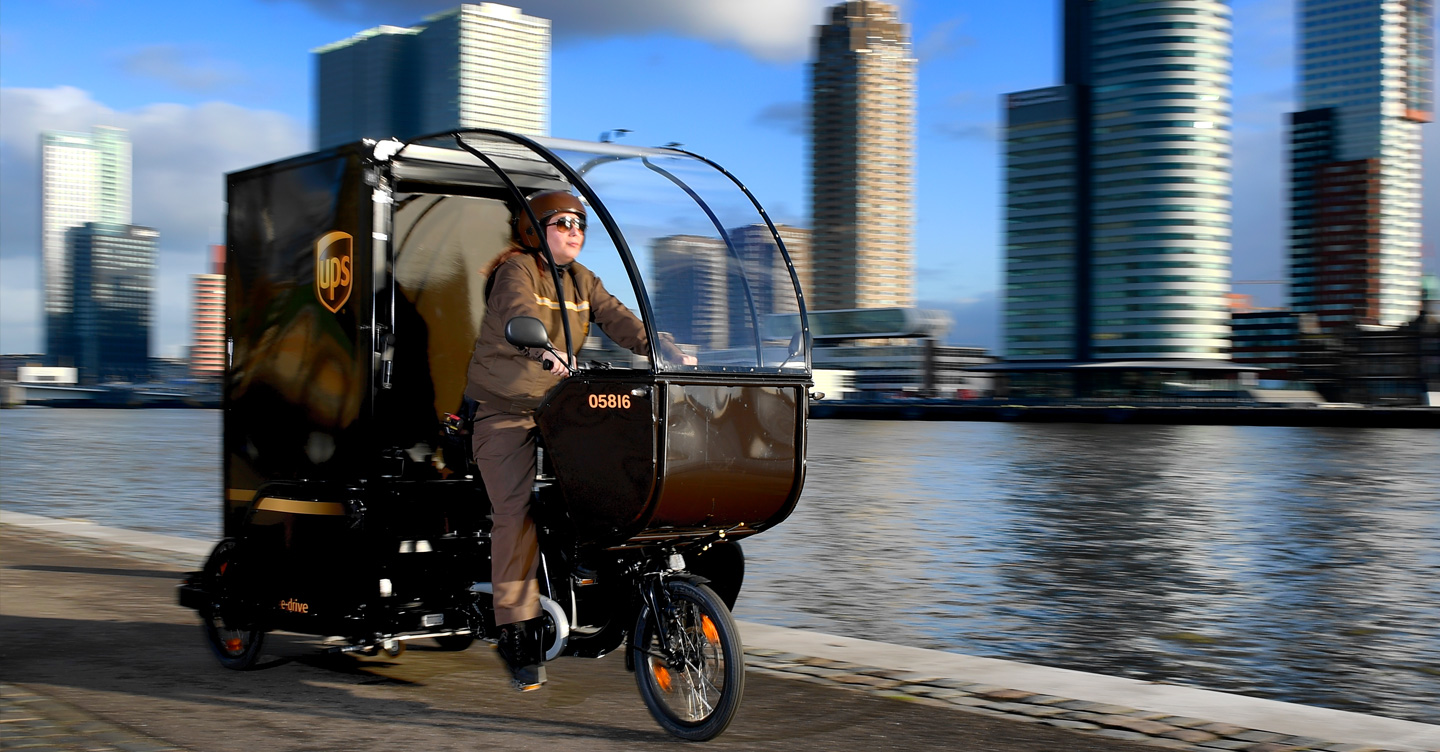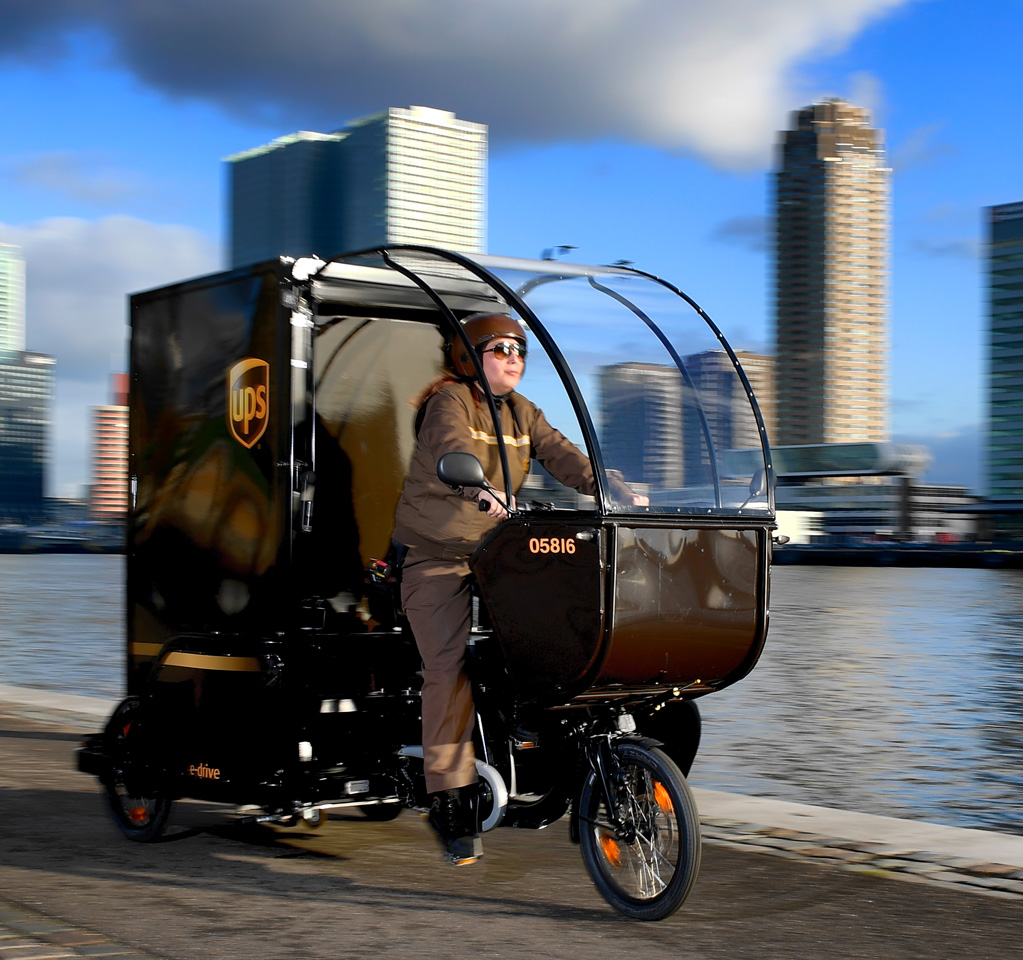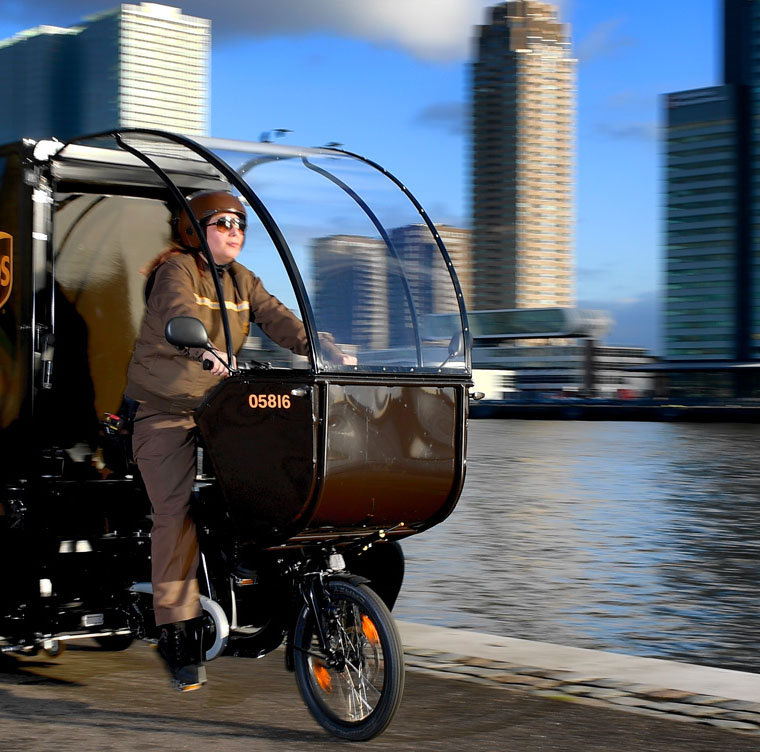UPS has pilot-tested e-bike delivery systems all over the world. What started in 2012 as a small test operation in Hamburg, Germany, has grown into a network of more than 30 innovative urban logistics projects in cities worldwide.
Nearly a decade of collaborating with city stakeholders on more sustainable logistics solutions has enabled UPS to identify and scale the right combo of solutions, such as electric vehicles, bikes, and even drones.
UPS is exploring a range of solutions to make deliveries within cities more efficient and with zero emissions. Here are just a few examples of how we’re applying these insights to new projects.
- Bikes work best in dense environments. UPS is collaborating on a six-month pilot with other logistics companies to reduce delivery-related congestion in New York City, particularly the most congested parts of Manhattan, using access to commercial loading areas, sidewalks and more than 1,250 miles of bike lanes.
- Many customers make for more efficient delivery. Areas with a high density of UPS customers are bike delivery sweet spots. Packages can be transported to an Eco Hub that serves as a mini distribution center, then efficiently delivered to customers via bike or on foot. At Trinity College Dublin, UPS e-bikes now make deliveries from a package hub on campus, and students and staff can collect parcels from storage lockers any time of day.
- Partnerships with cities is key. Solutions can help cities meet their emissions reduction goals – but only if cities are on board. City officials are instrumental in helping communities adapt to new logistics models aimed to reduce emissions. UPS is helping Copenhagen and Stockholm meet carbon-neutral goals using e-bikes to replace 350 daily stops previously made with conventional fuel vehicles through emissions-free bike deliveries.


